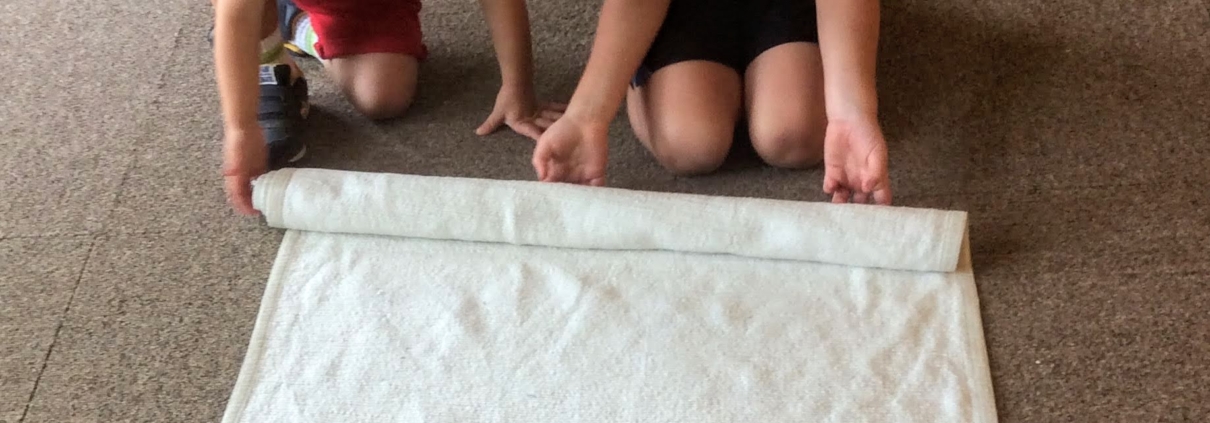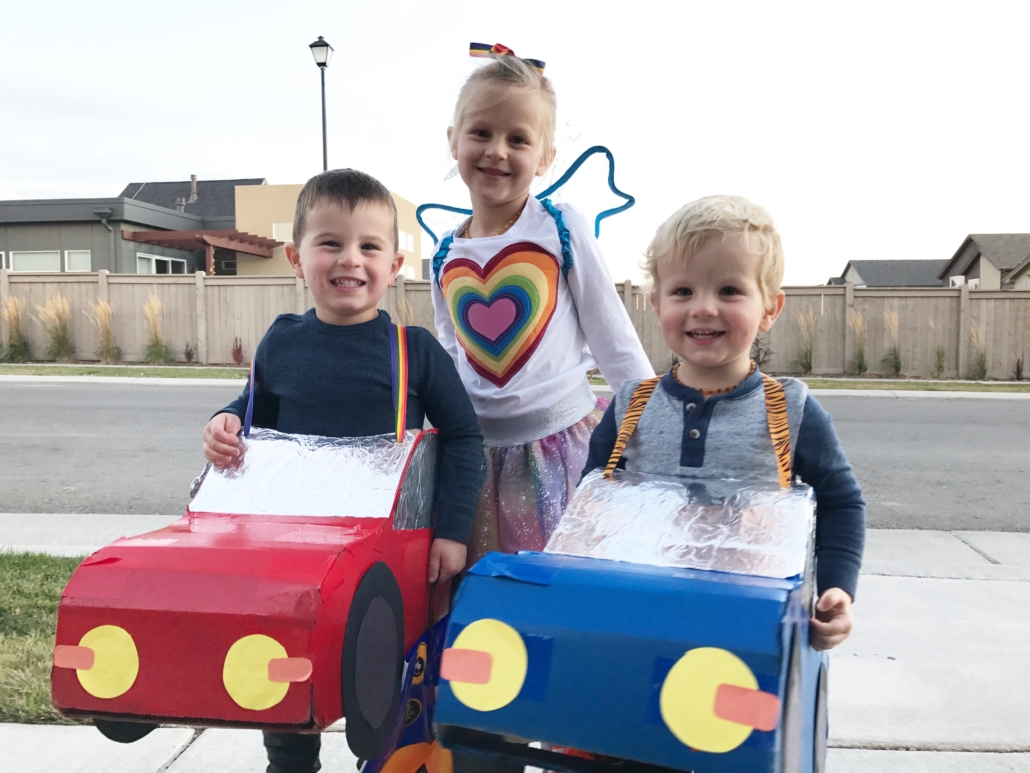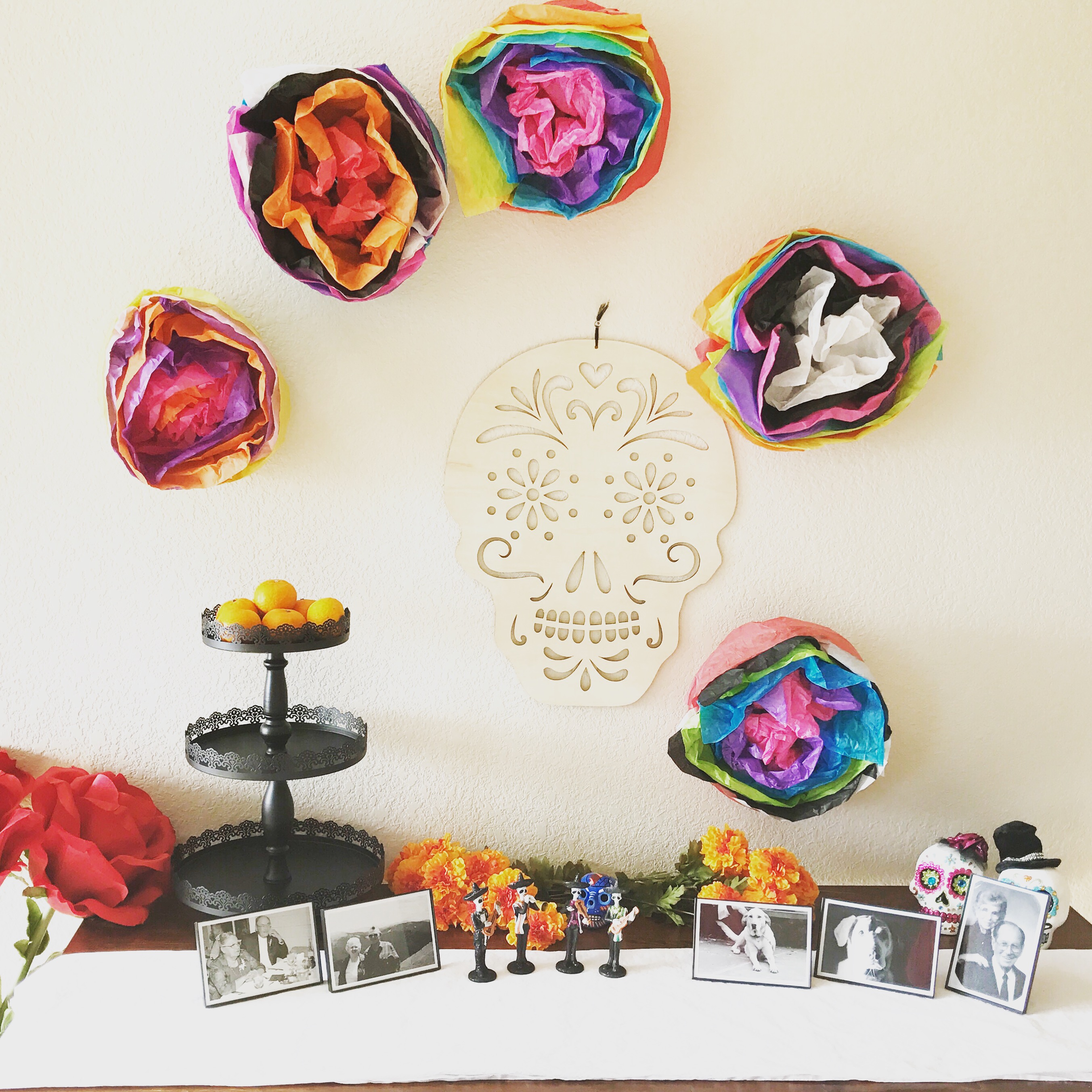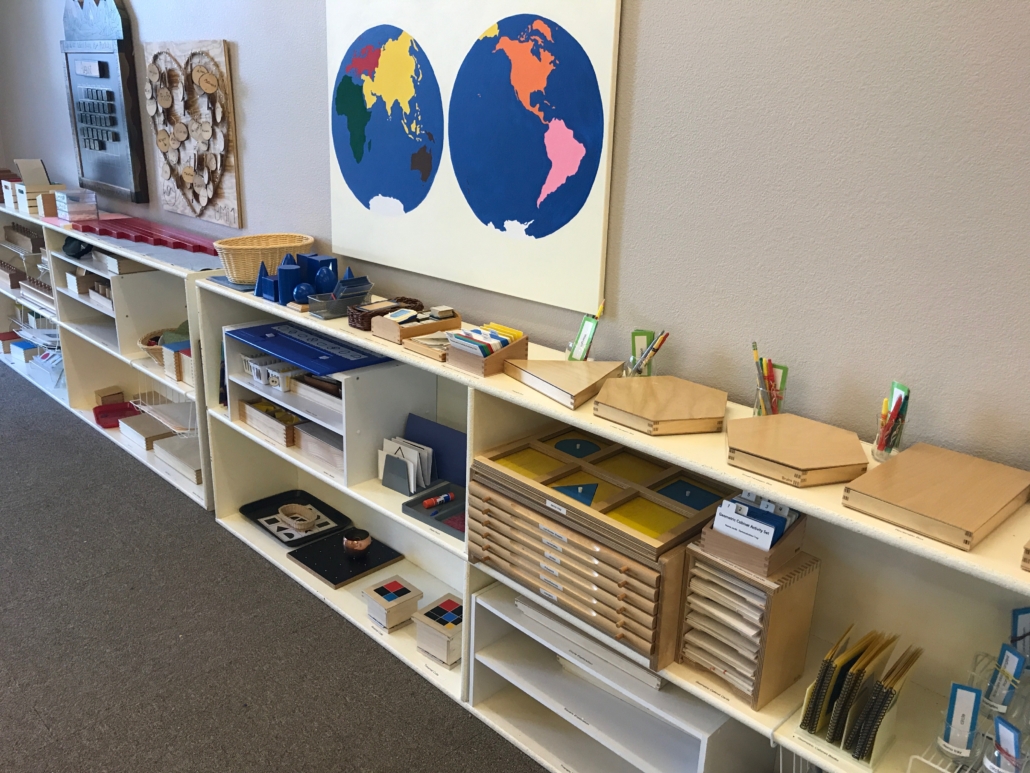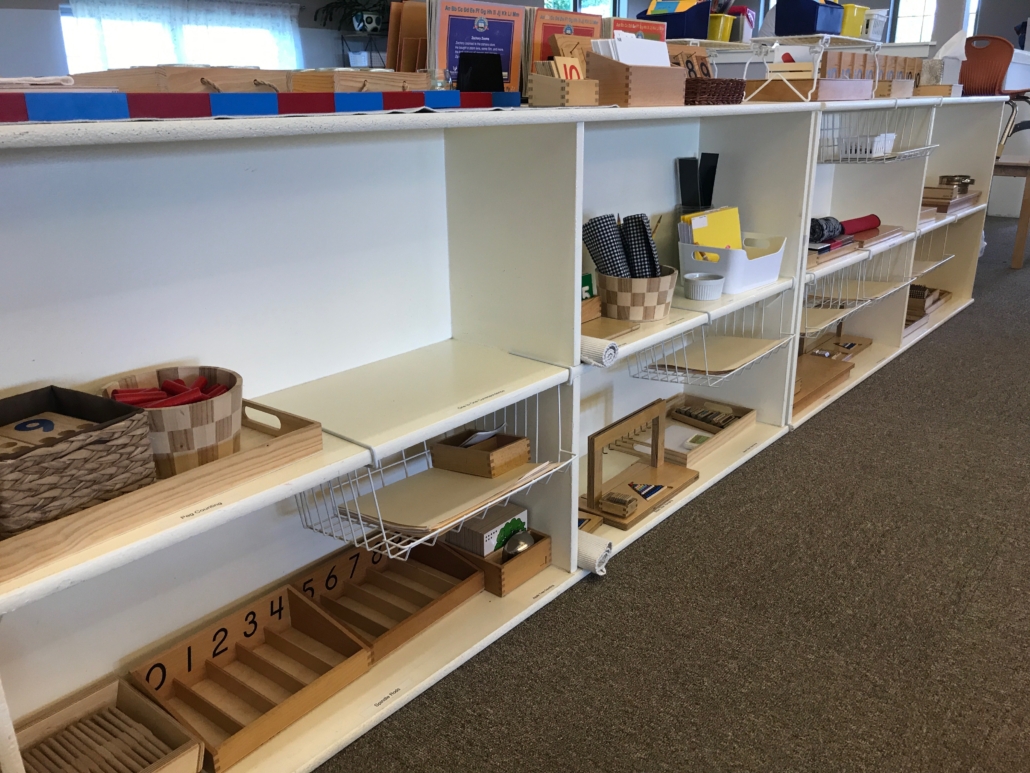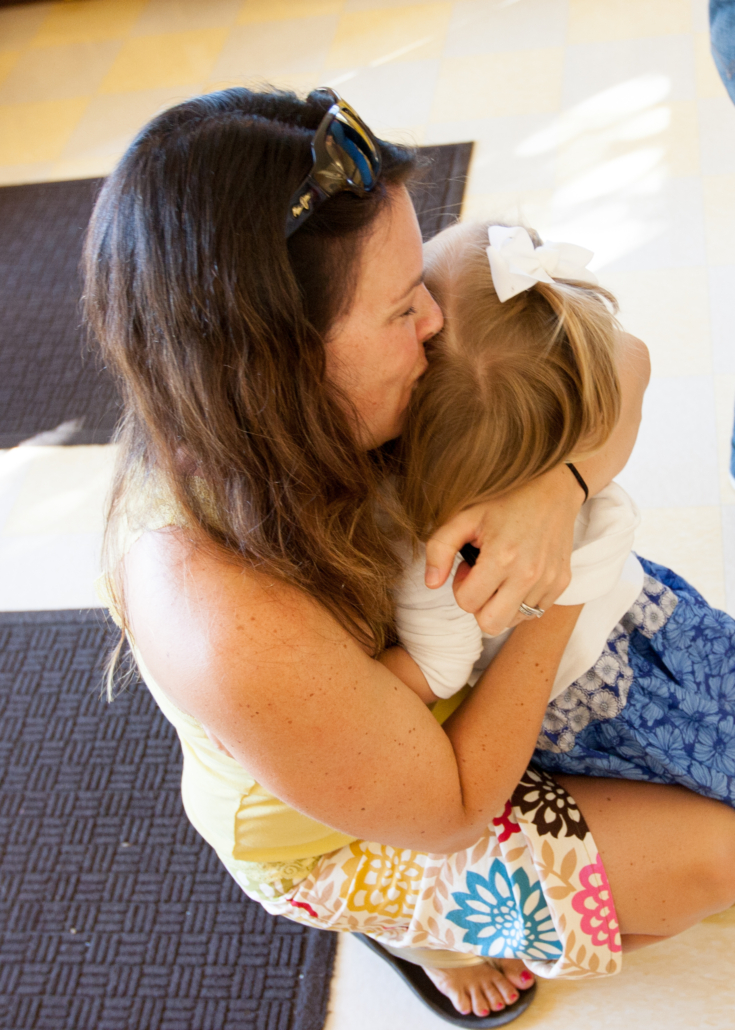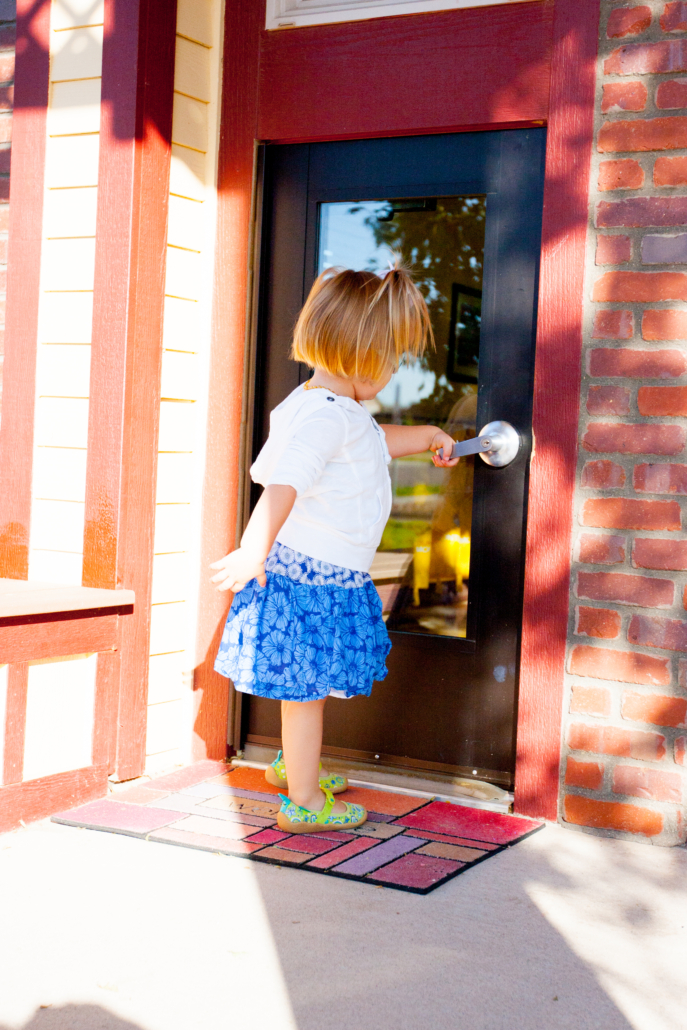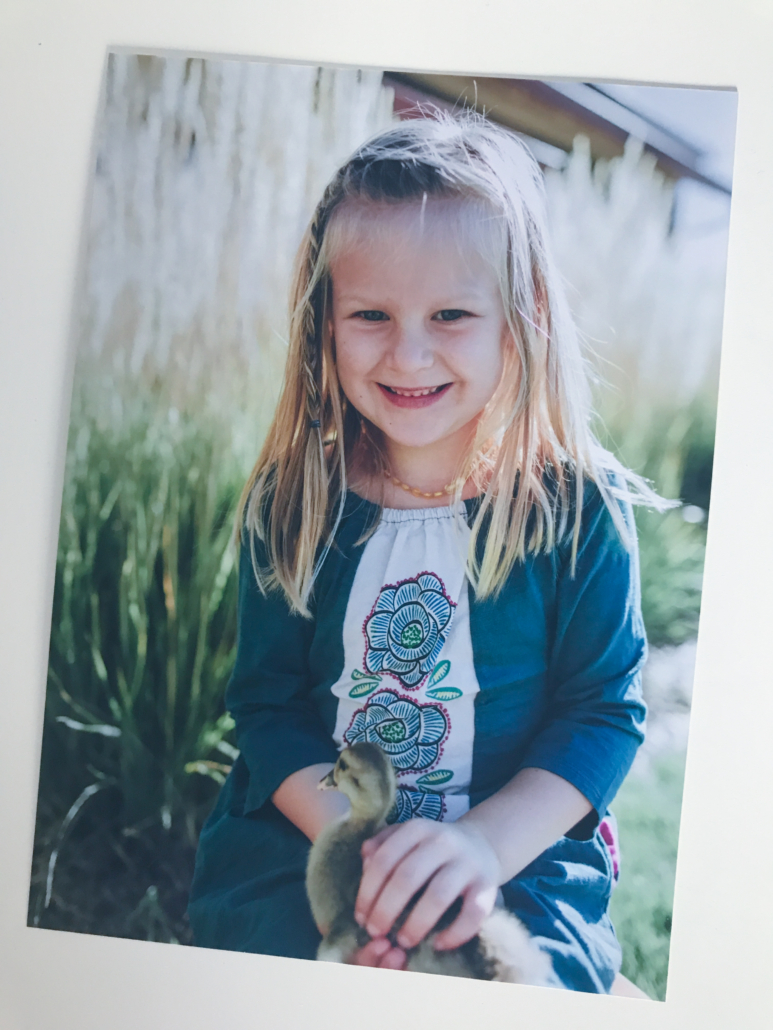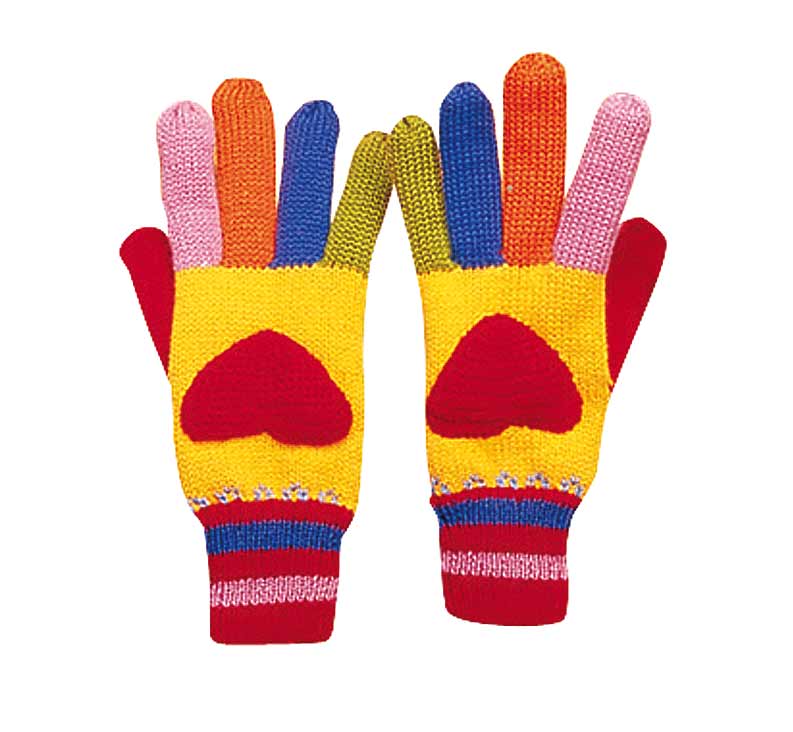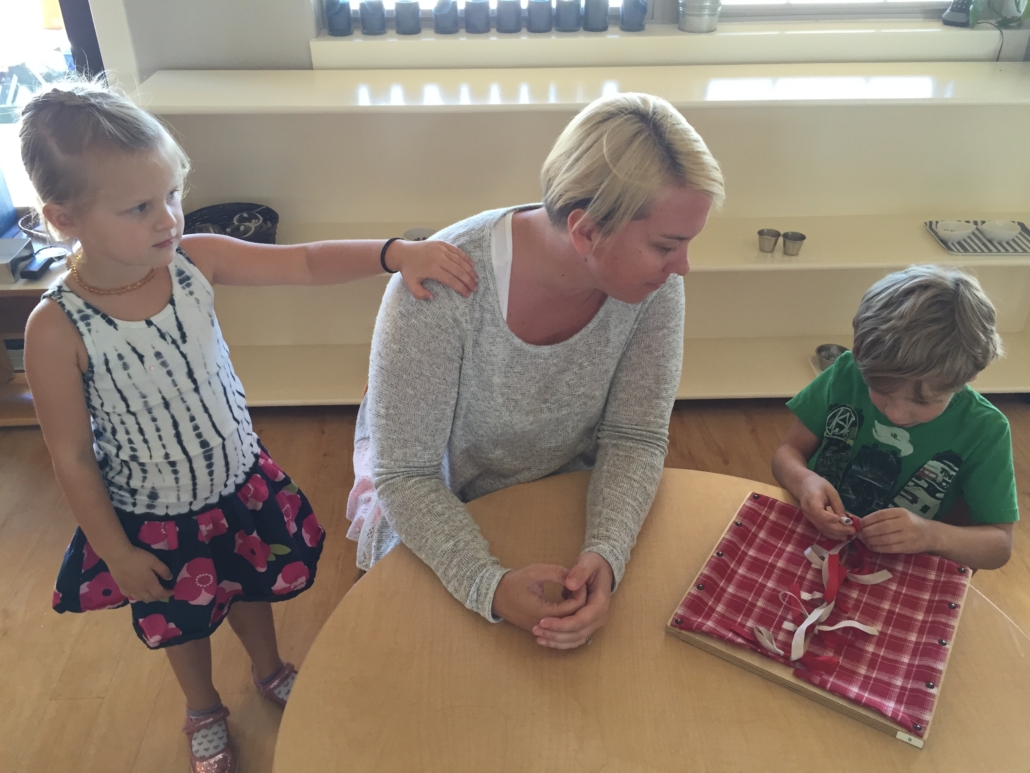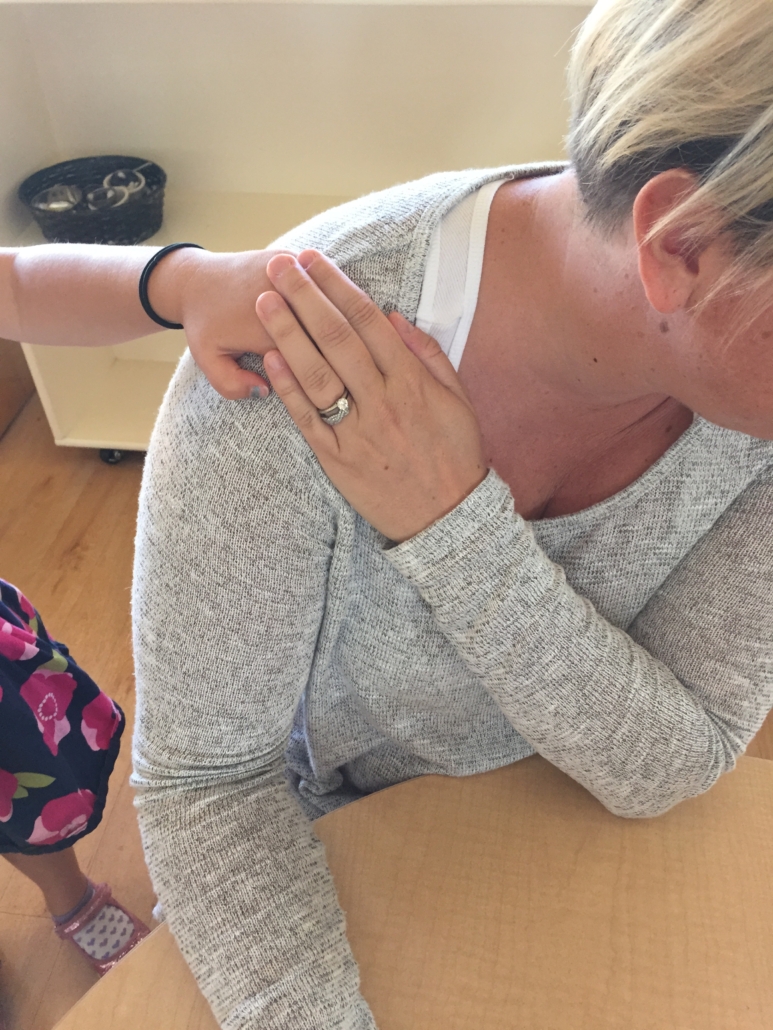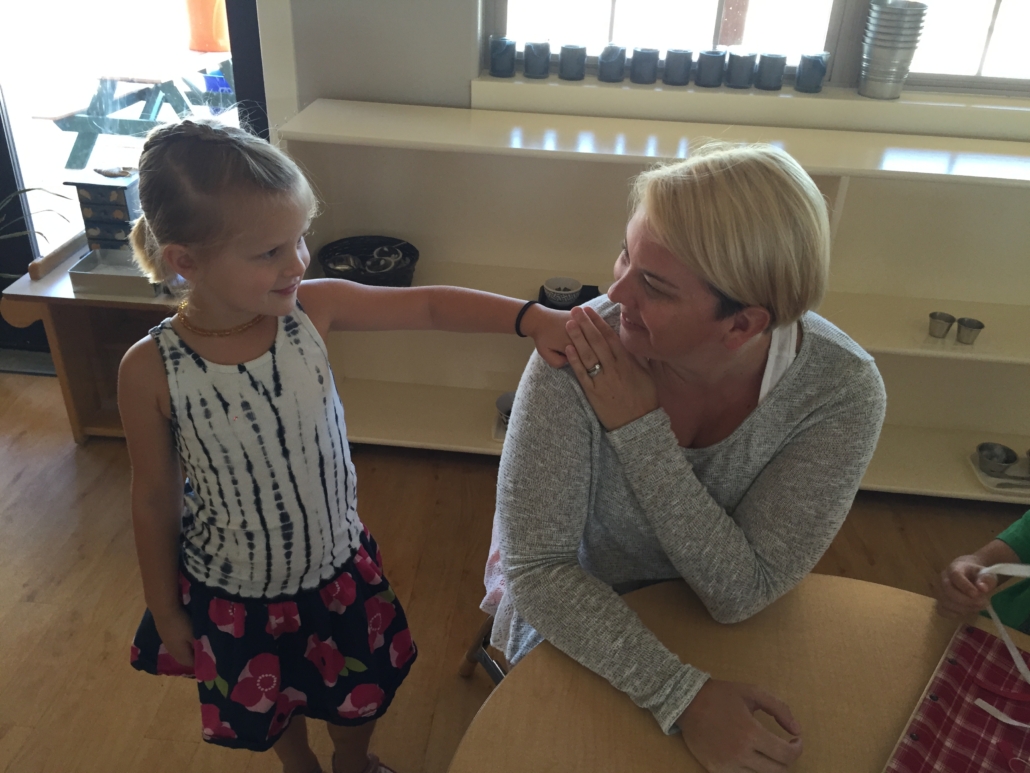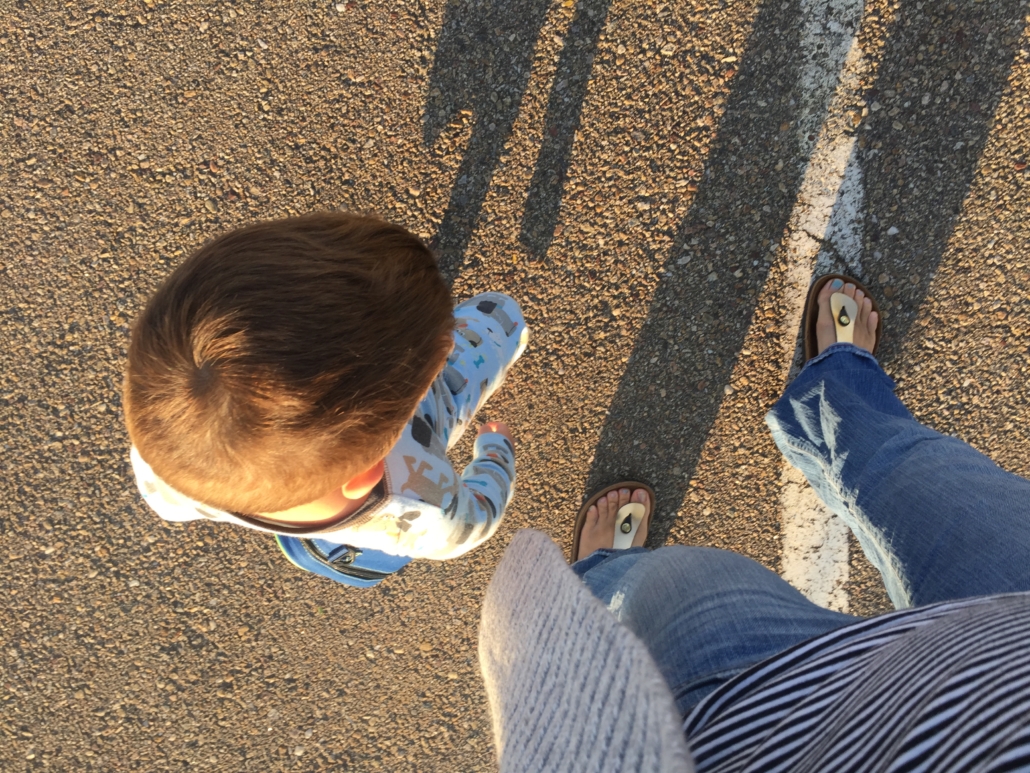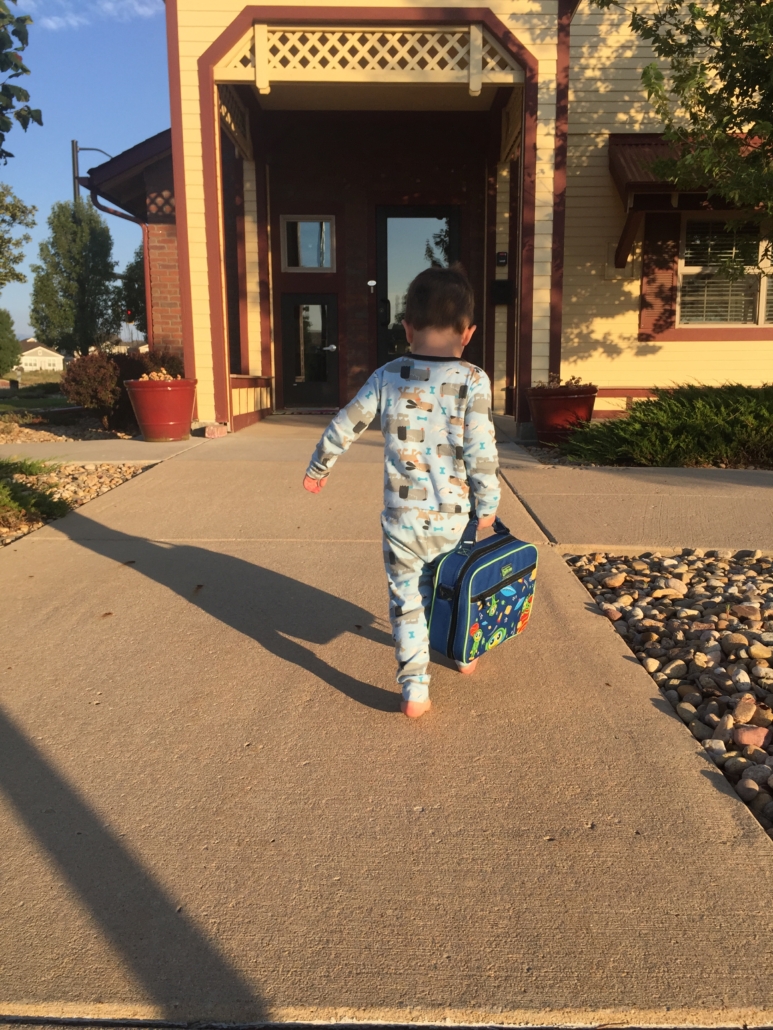“How do you do it?” It is a question we receive often from parents. Most of the time my reply is more tongue in cheek than it is from the heart. “Oh, working with the children is the easy part” I reply. And while there is truth to that response, I’ve been feeling compelled to speak more from the heart and answer this question honestly, and with as much compassion as possible.
How do we do it? Most often when people ask this they mean, how do you work with so many tiny children? How do you get them to listen? How do you get them to clean up their things? How do you get them to sit quietly? How do you stay calm, not go crazy or lose your mind?
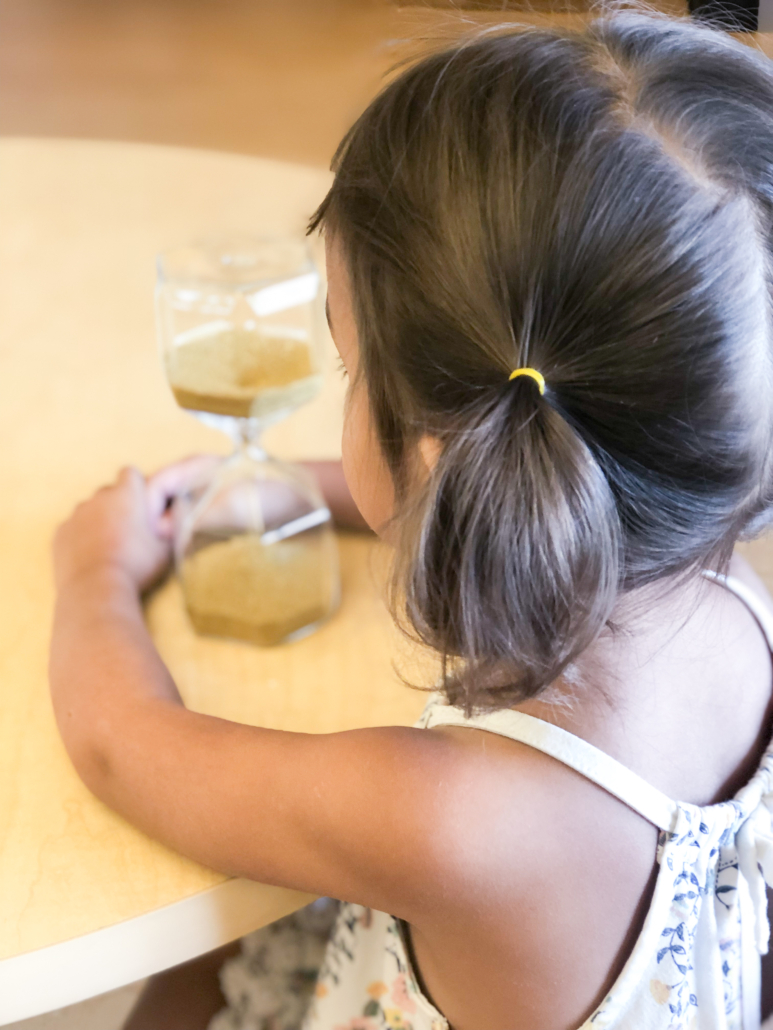
2.5 year old making silence.
The answer is simple – it truly is. We never underestimate their ability. That’s it, that’s the secret! As Montessori teachers, we are trained in how to give lessons, how to build a beautiful learning environment, how to observe, and how to make the perfect match between the child and the material so that the challenge is just right. But the secret sauce that makes it all work is a core belief that they can.
More often than not children’s’ abilities are underestimated. Notice the children you see at restaurants in front of screens because it is assumed that they cannot sit at dinner politely for an extended period of time and hold an interesting conversation. Count the number of hours spent putting away your child’s toys that have been left out time and time again. Think about the times we find ourselves wishing for a third arm as we carry our children’s’ backpacks, lunch boxes, sports gear, etc. for them. (I too catch myself underestimating my own children outside the classroom, but I’m here to tell you they can do it.) Get curious about how many times we allow our children to interrupt us because for some reason we feel waiting is too hard for them. And while many of these actions are done in the spirit of helping, what we are unintentionally telling our children is “I don’t think you can do this, let me do it for you.” Ugh, that feels like a punch in the gut, doesn’t it? The good news is, you are not alone in this, and that it is never too late to start advocating for their abilities.
In our classroom, we work tirelessly to show the children just how much they can do. We show them how, and then we expect them to because they can! In our classroom, the children get their own snack, pour their own water, wash their own dishes. They put on their own shoes and coats. They fold laundry, mop up spills, put works back where they belong, refill supplies when needed, clean tables, empty trash, and the water plants. They offer lessons to friends, wait patiently for their turn, and quiet their own minds and bodies to make silence. They do all of these things and so much more. It simply wouldn’t be possible for us to teach without being able to count on their independence.
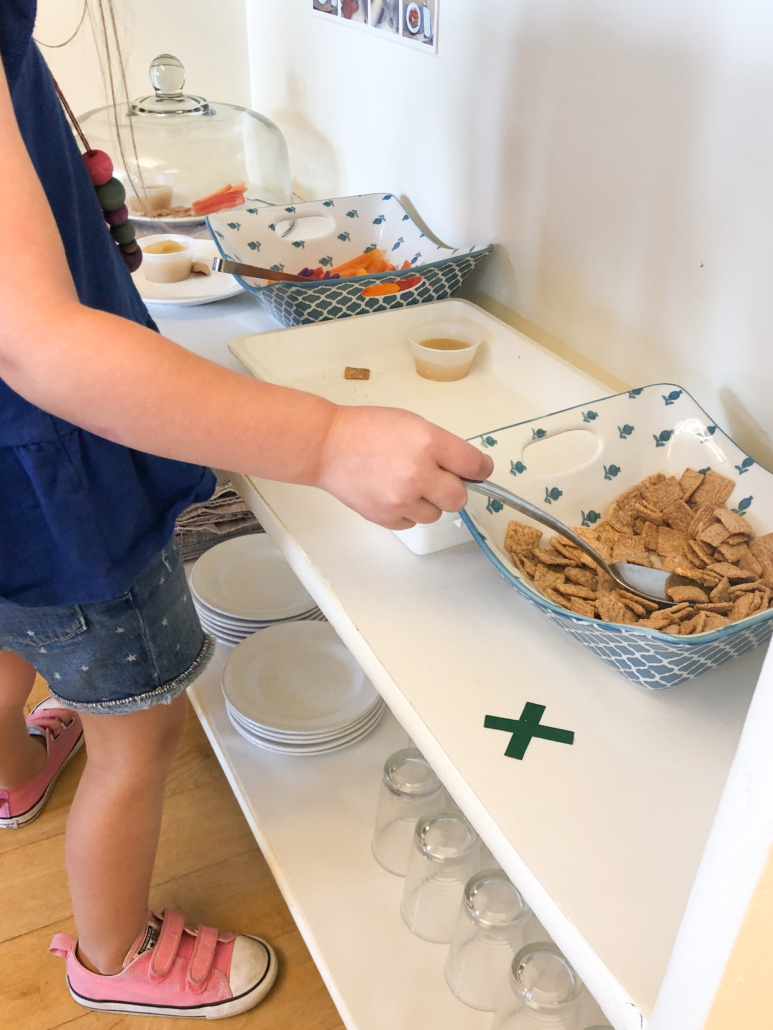
4yo serving themselves snack
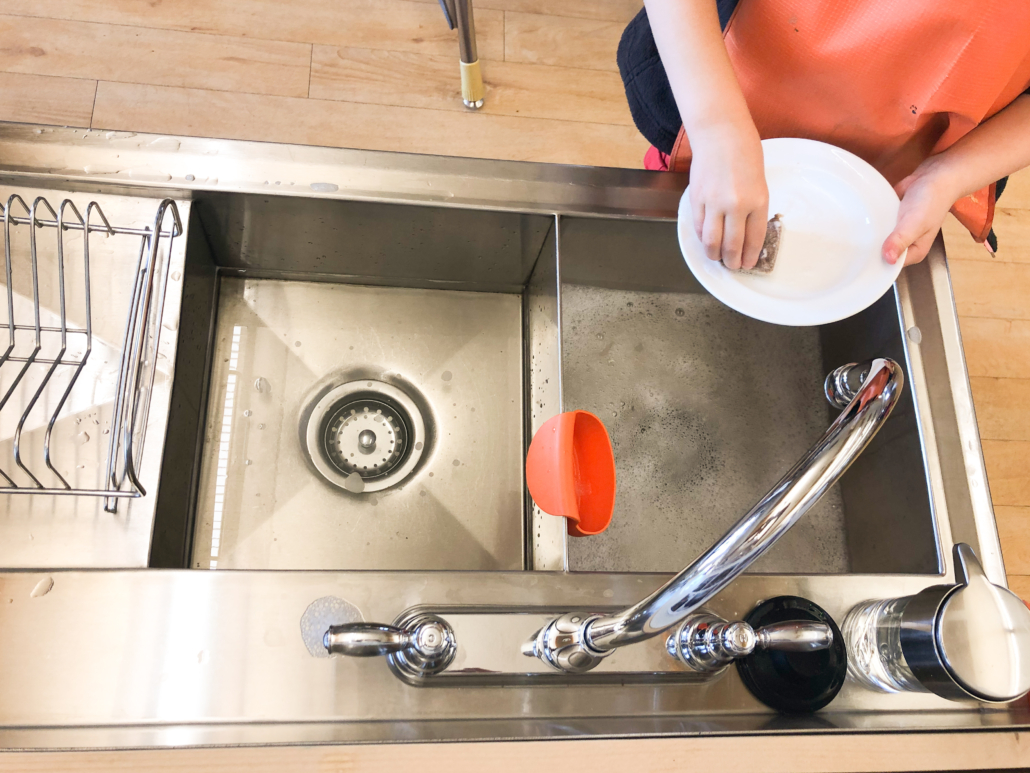
4yo washing their own dish
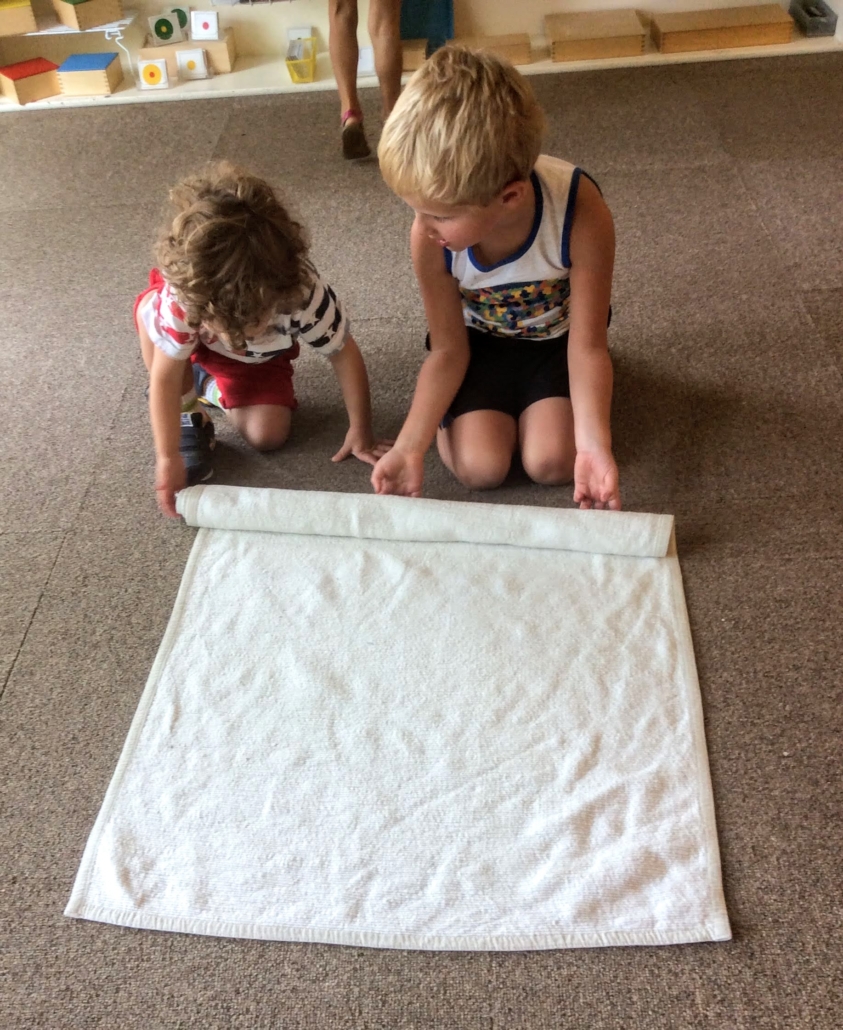
5yo offering a lesson to a younger friend
So how do we do it? We actually don’t; the children do it. We simply offer guidance and love and support and a steadfast belief that they can do anything.

